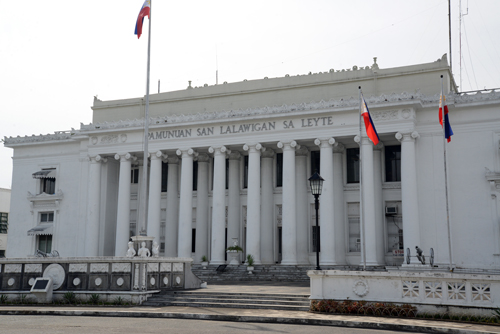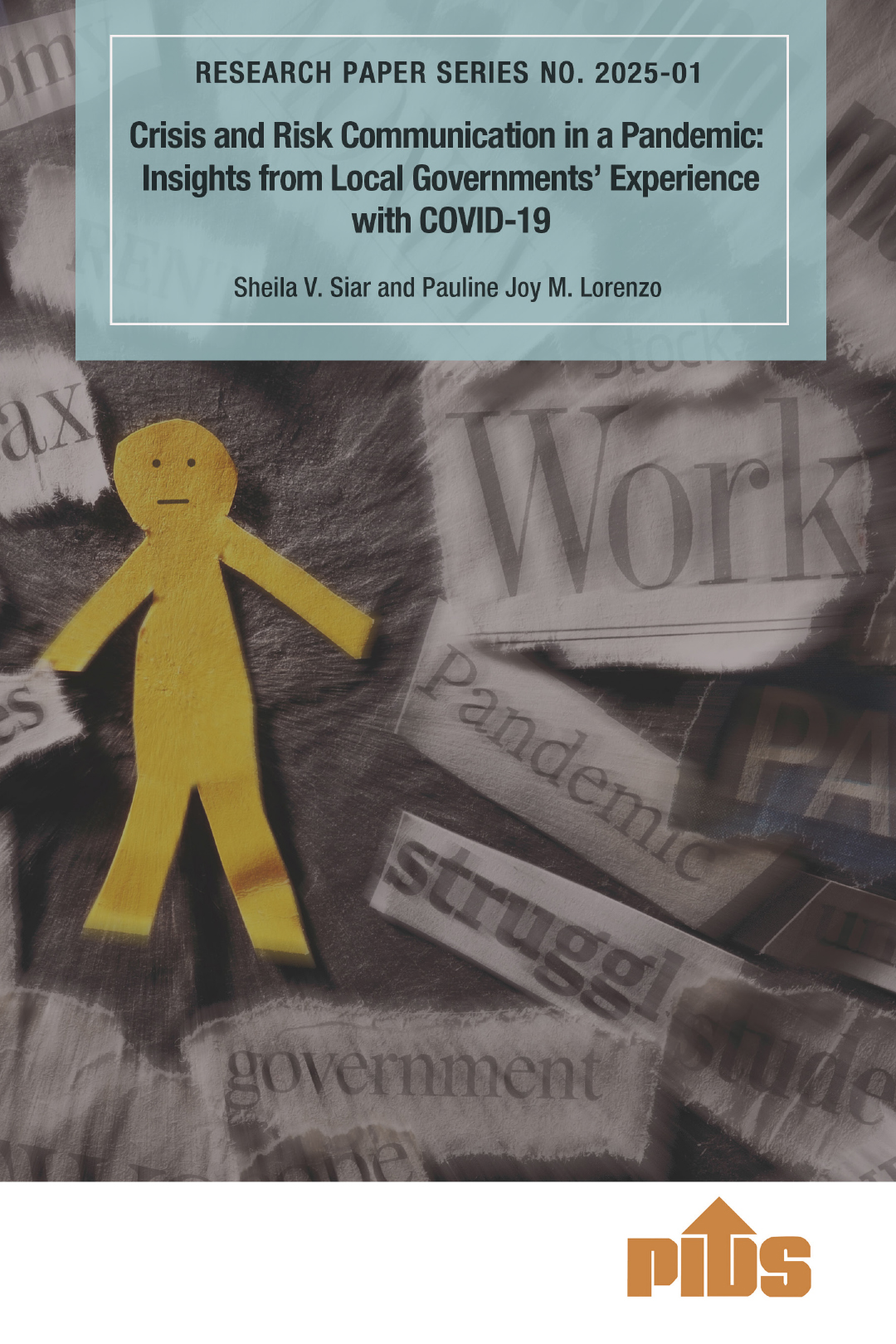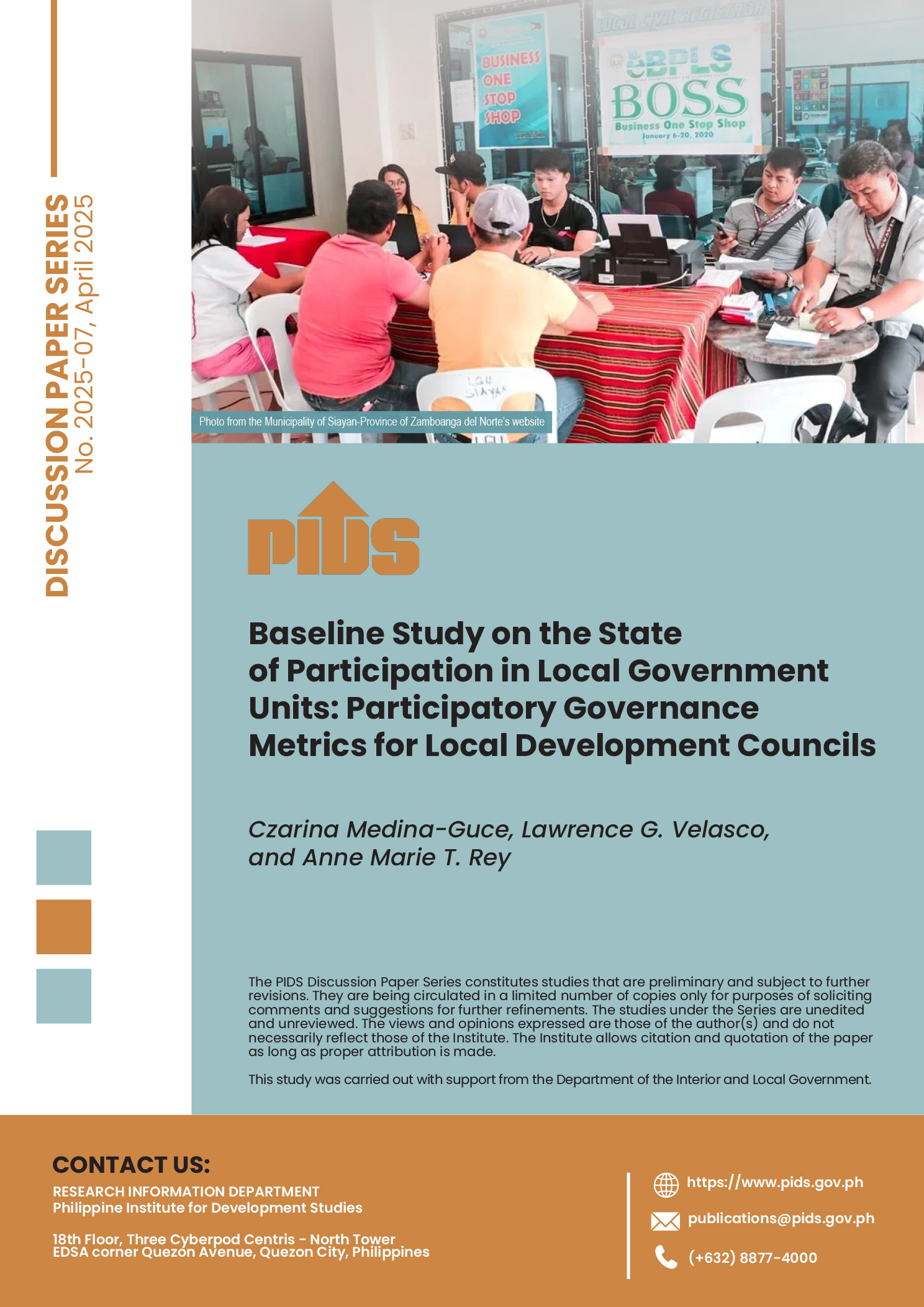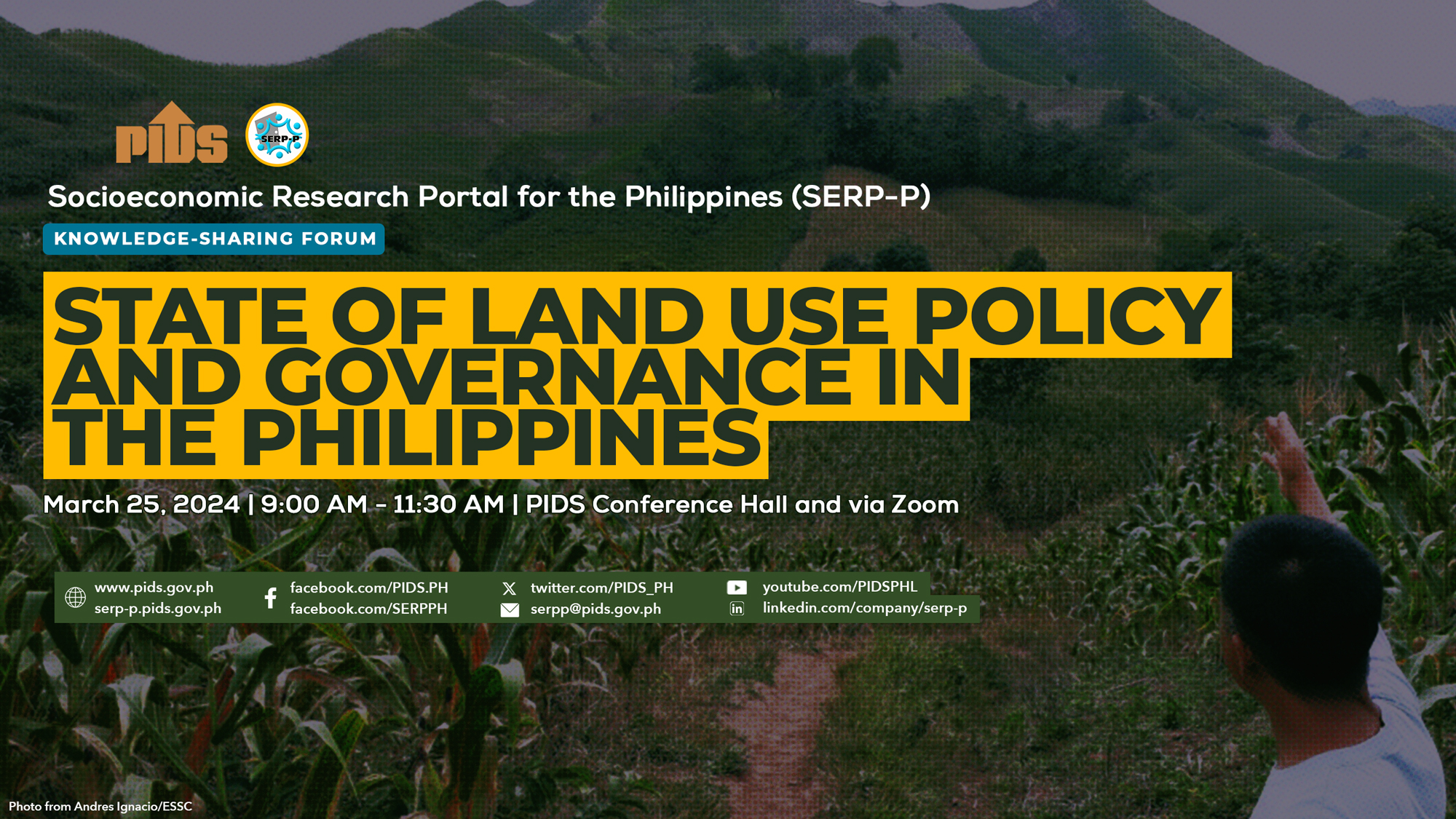
The passage of the Local Government Code in 1991 instituted a system of decentralized governance that granted local governments more powers, authority, responsibilities, and resources in the pursuit of local development. This paradigm shift in governance legitimized the position of local actors as significant partners of national actors in the development process.
Partnership between the local leaders and the stakeholders is important to effectively carry out programs. In the policy note, "Mainstreaming disaster risk management in local government", Dr. Gilberto Llanto, PIDS president, described an innovative approach to disaster risk reduction developed by a provincial government. Frequented by typhoons and threatened by the eruption of an active volcano in the vicinity, local officials of Albay province set up a permanent facility to address risk management. Working closely with village leaders, they have identified risk-prone areas and relocated people to safer sites during calamities. Regular education programs on disaster preparedness, including quarterly drills, are also conducted. To help other provinces confronted by the same situation, the local government has implemented peer-to-peer replication by helping to capacitate these areas using local approaches that they developed.
In spite of marked improvements in local governance shown in these examples, it is clear there is still much to be hoped for. An area that has lagged behind is the health sector as manifested by serious underfunding of local health services and understaffing of local health facilities. A PIDS study from the Health Systems Research Management Project commissioned by the Department of Health also reveals the uneven and wide disparities in universal health coverage of the poor across regions and provinces under the sponsored program of the national health insurance scheme. Local governments play an important role in the program—both as provider of health services and financier of the health premiums and health services rendered.
The increasing economic and social inequalities between regions reflect the need for stronger local governance institutions. Despite some improvements over the period 1991-2012, regional disparities have widened, with Luzon remaining to be better off than Visayas and Mindanao, and poverty incidence increasing consistently in the Autonomous Region in Muslim Mindanao. In “Sustainable Development Framework for Local Governance”, Dr. Josef Yap and Michael Cabalfin, former PIDS president and research associate, respectively, attributed the widening disparities between regions to the persistent concentration of infrastructure and investments in better-off areas. They highlighted the interrelatedness of the different aspects of development: from investments and infrastructure, to health and education services, institutions, and good governance, among others. The presence or lack of these factors, and their convergence, determine the development trajectory of a region. Local governments, aided by the national government, have a big responsibility in facilitating local development. They should also ensure the effective and efficient delivery of basic services to their constituents, exercising prudence in the utilization of resources and improving equity of access to socioeconomic opportunities of the poor and marginalized through mechanisms such as demand-side financing.
To know more about PIDS research on local governance, visit the SocioEconomic Research Portal for the Philippines. Simply type “governance”, “local governance”, “local government”, “decentralization”, “health decentralization”, “local health care”, “institutional development”, “basic education”, and related terms in the Search box.
Sustainable Development Framework for Local Governance
Economic Growth Must Translate to Better Health Outcomes
Managing Urbanization Under a Decentralized Governance Framework (Volume 1)
Managing Urbanization Under a Decentralized Governance Framework (Volume 2)
The quality of local government and development under decentralization in the Philippines
Perspectives on Health Decentralization and Interjurisdictional Competition among Local Governments in the Philippines
Mainstreaming Disaster Risk Management in Local Governments
Making reforms truly transform: the case of Philippine basic education
Globalization and Glocalization: Experiences in the Local Philippine Context
E-Government Initiatives of Four Philippine Cities
E-governance at the Local Government Level in the Philippines: An Assessment of City Government Websites
Devolution of Environmental and Natural Resource Management in the Philippines: Analytical and Policy Issues
Partnership between the local leaders and the stakeholders is important to effectively carry out programs. In the policy note, "Mainstreaming disaster risk management in local government", Dr. Gilberto Llanto, PIDS president, described an innovative approach to disaster risk reduction developed by a provincial government. Frequented by typhoons and threatened by the eruption of an active volcano in the vicinity, local officials of Albay province set up a permanent facility to address risk management. Working closely with village leaders, they have identified risk-prone areas and relocated people to safer sites during calamities. Regular education programs on disaster preparedness, including quarterly drills, are also conducted. To help other provinces confronted by the same situation, the local government has implemented peer-to-peer replication by helping to capacitate these areas using local approaches that they developed.
In spite of marked improvements in local governance shown in these examples, it is clear there is still much to be hoped for. An area that has lagged behind is the health sector as manifested by serious underfunding of local health services and understaffing of local health facilities. A PIDS study from the Health Systems Research Management Project commissioned by the Department of Health also reveals the uneven and wide disparities in universal health coverage of the poor across regions and provinces under the sponsored program of the national health insurance scheme. Local governments play an important role in the program—both as provider of health services and financier of the health premiums and health services rendered.
The increasing economic and social inequalities between regions reflect the need for stronger local governance institutions. Despite some improvements over the period 1991-2012, regional disparities have widened, with Luzon remaining to be better off than Visayas and Mindanao, and poverty incidence increasing consistently in the Autonomous Region in Muslim Mindanao. In “Sustainable Development Framework for Local Governance”, Dr. Josef Yap and Michael Cabalfin, former PIDS president and research associate, respectively, attributed the widening disparities between regions to the persistent concentration of infrastructure and investments in better-off areas. They highlighted the interrelatedness of the different aspects of development: from investments and infrastructure, to health and education services, institutions, and good governance, among others. The presence or lack of these factors, and their convergence, determine the development trajectory of a region. Local governments, aided by the national government, have a big responsibility in facilitating local development. They should also ensure the effective and efficient delivery of basic services to their constituents, exercising prudence in the utilization of resources and improving equity of access to socioeconomic opportunities of the poor and marginalized through mechanisms such as demand-side financing.
To know more about PIDS research on local governance, visit the SocioEconomic Research Portal for the Philippines. Simply type “governance”, “local governance”, “local government”, “decentralization”, “health decentralization”, “local health care”, “institutional development”, “basic education”, and related terms in the Search box.
Sustainable Development Framework for Local Governance
Economic Growth Must Translate to Better Health Outcomes
Managing Urbanization Under a Decentralized Governance Framework (Volume 1)
Managing Urbanization Under a Decentralized Governance Framework (Volume 2)
The quality of local government and development under decentralization in the Philippines
Perspectives on Health Decentralization and Interjurisdictional Competition among Local Governments in the Philippines
Mainstreaming Disaster Risk Management in Local Governments
Making reforms truly transform: the case of Philippine basic education
Globalization and Glocalization: Experiences in the Local Philippine Context
E-Government Initiatives of Four Philippine Cities
E-governance at the Local Government Level in the Philippines: An Assessment of City Government Websites
Devolution of Environmental and Natural Resource Management in the Philippines: Analytical and Policy Issues












